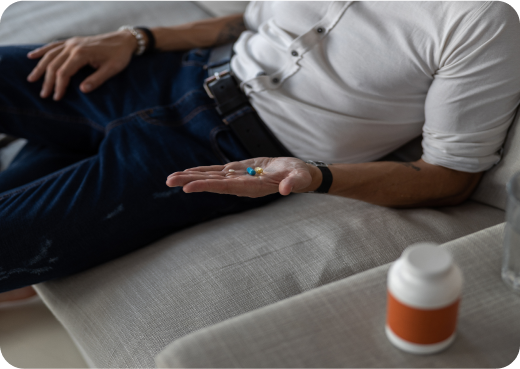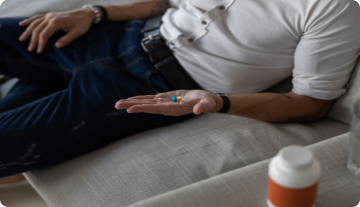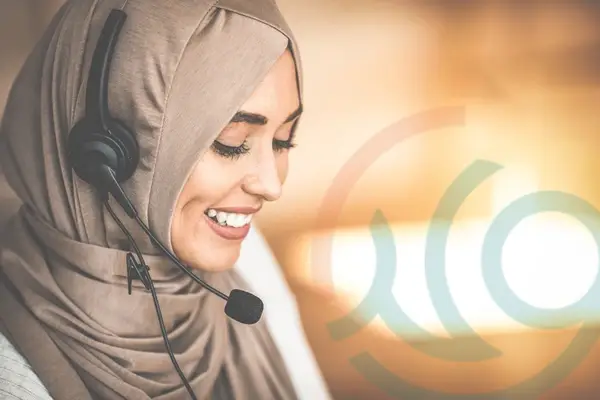Waad Rehabilitation Center
Introduction
The Waad One Rehabilitation Program provides long-term support for individuals suffering from the consequences of addiction to mood-altering and narcotic substances. This is achieved through a comprehensive package of therapeutic, counseling, awareness, self-development, sports, cultural, and therapeutic trip programs. To meet the broad and diverse needs of beneficiaries, all resources have been mobilized to unite efforts in combating and treating addiction in our beloved country. The center also brings together all medical, psychological, social, religious, and recovery guidance specialties experienced in dealing with addiction.
The center offers a range of programs that allow for case assessment, helping individuals abstain from substance use and overcome the problems caused by addiction. These programs are structured across multiple therapeutic levels, to which each case is referred based on its specific needs. The therapeutic and counseling program extends over a period tailored to each case, with the aim of helping individuals adopt a healthy and positive lifestyle.
An important aspect provided by the center is a supportive and accessible environment for recovered individuals to reach out for help or follow-up, ensuring proper rehabilitation for them and their families. The treatment approach is not limited to the medical aspect but also involves personality development, correction of false beliefs, cognitive distortions, and behavioral deviations caused by addictive patterns. These are core elements of the program, aimed at reintegrating individuals into productive life and responsible citizenship, as well as facilitating their integration into society.


Our Mission
To make Waad Rehabilitation Center the ideal model in the treatment and rehabilitation of individuals addicted to various narcotic substances, through high-quality therapeutic and rehabilitation programs delivered at the highest possible standards

Our Vision
To provide a safe, specialized, and supportive environment for those seeking to overcome drug addiction or help others do so — a place where they can access a variety of programs designed to protect them from the traps of addiction and equip them with the knowledge and guidance needed to sustain long-term recovery, God willing.
Our Goals
Providing therapeutic, counseling, and rehabilitation services for patients and their families.
Raising awareness about the issue of addiction and its negative effects on both the individual and society.
Implementing training programs to enhance the competency of professionals working in the field of addiction treatment.
The treatment programs used at Waad Rehabilitation Center
This international program aims to establish a lifestyle based on written principles applied during the treatment program. It becomes one of the core approaches that enables the beneficiary to effectively manage their life through structured steps that transition them from active addiction to recovery and balance in life.
This program aims to enhance the beneficiary’s motivation toward the treatment process by addressing the various causes of low motivation. It encourages the beneficiary to gain insight into the problems that hinder their recovery and helps them understand the nature of the relationship between addiction and the issues they are experiencing.
Providing the family with information that helps them understand the proper foundations for dealing with addiction.
Correcting and modifying the parents’ incorrect parenting methods used in raising their children.
Strengthening communication channels among all family members.
Helping parents create a family environment filled with care, interaction, and positive cooperation.
Some patients may remain in contact with former drug-using friends after cessation, exposing them to temptation and strong cravings, which can lead to relapse.
Therefore, there is an urgent need for the beneficiary to acquire essential skills to manage old relationships, learn effective refusal techniques for drug offers, and train to confront all potential temptations they may face during their recovery period.
This program aims to help the patient understand the meaning of craving, its causes, and the various factors that trigger the desire to use substances, as well as how to deal with it in a safe and effective manner that supports continued recovery.
Religious counseling is considered one of the fundamental pillars of the programs at Waad Center. It aims to correct certain misconceptions about religion held by beneficiaries and to enhance skills that strengthen spiritual motivation, reinforce religious commitment and observance of worship and rituals, and deepen the beneficiary’s relationship with Allah Almighty.
This program aims to change the negative behavioral and thought patterns of beneficiaries through therapeutic sessions that focus on identifying and modifying distorted thoughts and harmful behaviors, with the goal of improving mental health and achieving recovery.
In the event of a relapse during the treatment program, the therapeutic team convenes to study and analyze the relapse. Based on the outcome of the meeting, the beneficiary is enrolled in the Relapse Recovery Program and transferred to the treatment phase that best suits their condition, as determined by the therapeutic team.
The center organizes regular visits to holy sites and trips for Hajj and Umrah, in which beneficiaries and members of the therapeutic team participate. The program also includes recreational trips, cultural activities, and various events aimed at training individuals to enjoy life without relying on mood-altering substances.
Provided Services
The services offered at Waad Center include a range of programs and treatments that comprehensively meet the needs of beneficiaries. By providing individual and group therapy programs, along with psychological and social support, the center enhances beneficiaries’ abilities and helps them overcome their challenges.

Professionally Guided Groups
These groups are facilitated by members of the treatment team at the center, such as a psychologist, social worker, recovery counselor, or spiritual advisor, with each group led by a dedicated professional.

Self-Guided Groups (Self-Help Support Groups)
These groups are managed by the beneficiaries themselves, during which they exchange experiences and help each other remain abstinent from substance use

Individual Sessions
Regular individual sessions are conducted with beneficiaries to promptly identify and address any problems they may be experiencing, ensuring these issues do not negatively impact their lives. During the session, the beneficiary’s continued participation in the program is also assessed to ensure it remains effective and satisfactory.
Our Team
Have a question? We're here to help





